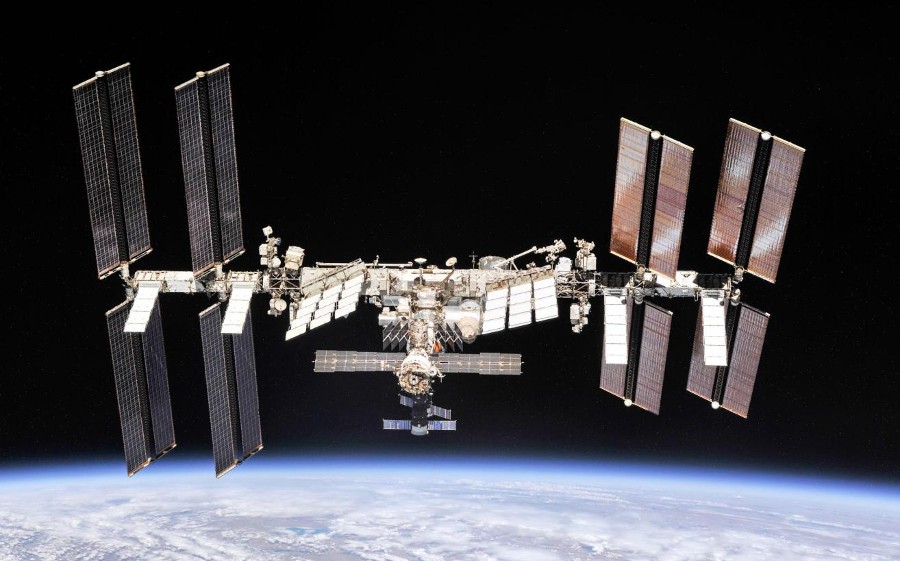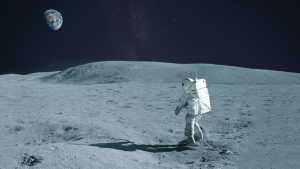The ISS and How Britain Became Involved
22nd Aug 2022
It’s fair to say that the UK more than pulls its weight in terms of technology used all over the world. It is also fair to say that there is an area where the UK has lagged behind; space.
The UK has put forward space programmes since the 1950s. Bold steps in rocketry and other fields brought forward useful research and development. However, the closure of high profile projects curtailed the success of British endeavours.
Then the Brown government launched the United Kingdom Space Agency on 1st April 2010. Once people had established that the launch wasn’t an elaborate April fool’s joke, the agency was able to go about its crucial and impressive work, and within 12 short years, the UK has even developed technology to send to the ISS.
2019: The UK Announces Biggest Ever Investment in International Space Programme
It’s not like the UK wasn’t historically involved beforehand. The British National Space Centre (BNSC) was previously in charge of the UK’s space operations. This agency was, at one time, the third biggest contributor to the ESA’s general budget. In particular, the UK supported the Aurora programme and its robotic space exploration schemes.
However, the UK had decided that it would not initially contribute any funds to the ISS due to the fact it didn’t represent enough of a return. Paul Murdin, Director of Science at the BNSC told the BBC: “I said that we have decided that the ISS is not worth it on a value-for-money basis.”
In fairness to Murdin, he did go on to explain that the political motivations of the mission may make it a worthy pursuit. However, the government went on with the decision anyway.
There were no UK involvements in any crewed endeavours in the period between 1985 and 2010.
A Change of Heart
By 2019, however, the UK’s space contribution had undeniably grown.
Orbex Space and Open Cosmos launched in 2015, and in 2017 Skyrora began operations. By 2018, Skyrora had conducted Scotland’s first commercial rocket launch by a private company from the Kildermorie Estate.
The UK had arguably “seen sense” when it came to the ISS by 2012, with the UK Space Agency beginning its contributions to the ESA, which funded the ISS. In the minds and memories of many of the British public, the International Space Station fairly quickly became synonymous with one Brit in particular, when Tim Peake undertook his six month mission on board between December 2015 and June 2016. He spent 186 days in space after launching on a Soyuz (Russian) rocket, showing what an international effort space travel has historically been.
In November 2019, the UK Space Agency announced a commitment to increase the funding it contributes to £374 million every year. Moreover, UKSA committed to help with planning including those involving the ISS, as part of a five-year plan. This commitment means that the UK is a key part in European space efforts. Combined with the startup companies listed above, and in our recent guide to the Top 10 UK Space Companies, it is an exciting time for UK space exploration.
The ISS and UK Technology
The UK has been able to contribute to the overall efforts of improving the International Space Station, including the new ColKa (Columbus Ka-band) terminal installed in early 2021.
The terminal submits data to the ground station at the Harwell Campus, Oxfordshire. This site is located near ESA’s European Centre for Space Applications and Telecommunications. The data is sent at speeds to rival home broadband connections, strengthening the communications of the station. Incredibly, much of the data was previously sent back to earth on physical hard drives which had to be literally downloaded to earth.
NASA astronauts Victor Glover and Michael Hopkins installed the equipment during a spectacular six-hour space walk. The ESA shared images of the space walk to install the hardware, as the astronauts ventured into extreme temperatures and went without food and water as they completed their mission.
Brexit and the UK’s ESA Involvement
Naturally, when the UK announced it was to leave the European Union, people were very concerned about its involvement in a raft of European projects.
Would all of this progress be undone by the famous vote of 2016? After all, the referendum occurred within a week of Tim Peake’s return from the ISS.
Luckily, the answer was “no”. David Parker, Director of Human and Robotic Exploration at the European Space Agency, had already allayed some fears before the UK triggered article 50:
“ESA is an intergovernmental organisation, governed by an international treaty that’s in UK law. It was approved by Parliament back in the 1970s. Nothing has changed. So that’s a convention that governs ESA in the law of all of these different countries.
“There are also several states that are part of ESA but which are not in the EU. Canada is an associate member. So from a formal point of view, Brexit doesn’t affect the UK’s participation with ESA.”
The Future of the ISS (and the UK’s Involvement in the ESA)
While the UK will continue to support the ISS, much of the excitement around the industry is around the other ESA projects which the UK will continue to be a part of. As announced in the 2019 investment statement, plans for the money invested will involve, at least in part:
- Building the new space station to orbit the moon, the Lunar Gateway
- Returning real life samples from mars
- Launching a multitude of satellites to allow us to understand climate change, or even act on climate change
- Research space tech that helps with mobile technology and satellite connections all over the world
- Removing and reducing space debris and its effects, a growing problem as more satellites are launched into space
Britain’s space programme may be in its relative infancy, but with huge investment into private space companies as well as the UK’s continuing relationship with the ESA, the speed that things are being completed continues to grow, and the UK’s space programme and considerable human and technological resources can be key to the completion of a common goal; exploring space, and understanding more about the earth.






Thank you for your comment! It will be visible on the site after moderation.